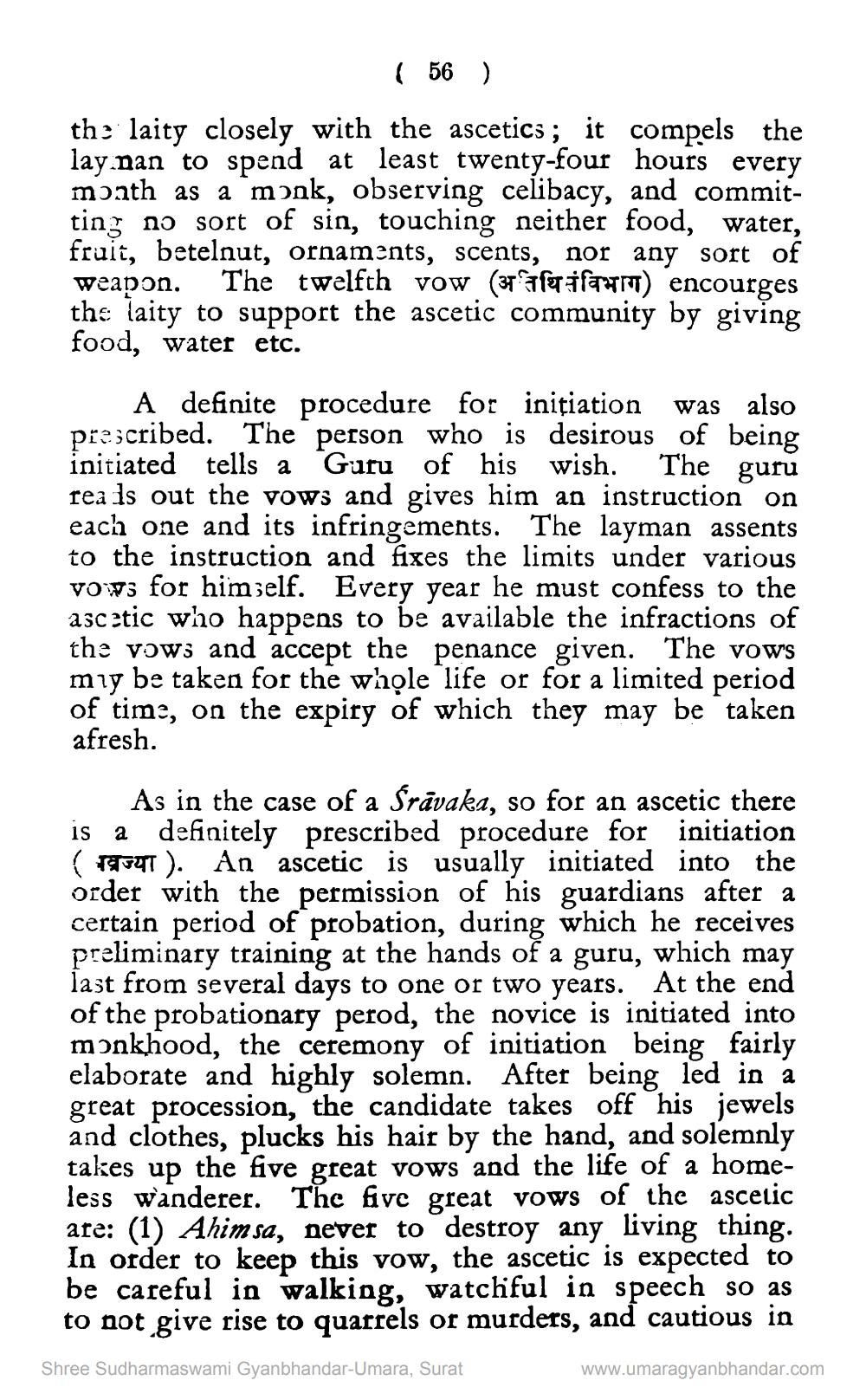________________
( 56 )
the laity closely with the ascetics; it compels the lay man to spend at least twenty-four hours every month as a monk, observing celibacy, and committing no sort of sin, touching neither food, water, fruit, betelnut, ornaments, scents, nor any sort of weapon. The twelfth vow (अतिथि संविभाग) encourges the laity to support the ascetic community by giving food, water etc.
A definite procedure for initiation was also prescribed. The person who is desirous of being initiated tells a Guru of his wish. The guru reads out the vows and gives him an instruction on each one and its infringements. The layman assents to the instruction and fixes the limits under various Vows for himself. Every year he must confess to the ascetic who happens to be available the infractions of the vows and accept the penance given. The vows may be taken for the whole life or for a limited period of time, on the expiry of which they may be taken afresh.
As in the case of a Śravaka, so for an ascetic there is a definitely prescribed procedure for initiation (T). An ascetic is usually initiated into the order with the permission of his guardians after a certain period of probation, during which he receives preliminary training at the hands of a guru, which may last from several days to one or two years. At the end of the probationary perod, the novice is initiated into monkhood, the ceremony of initiation being fairly elaborate and highly solemn. After being led in a great procession, the candidate takes off his jewels and clothes, plucks his hair by the hand, and solemnly takes up the five great vows and the life of a homeless wanderer. The five great vows of the ascetic are: (1) Ahimsa, never to destroy any living thing. In order to keep this vow, the ascetic is expected to be careful in walking, watchful in speech so as to not give rise to quarrels or murders, and cautious in
Shree Sudharmaswami Gyanbhandar-Umara, Surat
www.umaragyanbhandar.com




